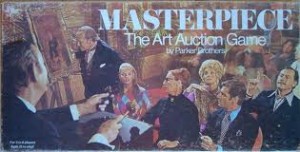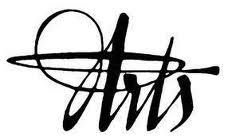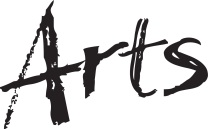Art. The arts. Fine arts. Performing arts. Visual arts. The lively arts. Arts & entertainment. Arts & culture. Culture. High culture. Pop culture.
The preceding phrases are all, on a very macro basis, variations on a theme. However, were you in a research study, and I showed you each of them, one at a time, I daresay they would provoke very distinct associations, very clear delineations of what each encompasses in your mind. Those responses would also likely change depending upon the order in which I showed these to you.
I could also take any two and combine them in a Venn diagram and the overlapping segment would be quite clear. But incorporate a third or fourth and you might find one of these categories the odd man out.
Why do I bring this up? Because as the “arts community” fights its valiant, essential and never-ending battle to convince the public at large of the value of “the arts,” I cannot help but wonder whether those on the receiving end of such messaging each hear very different things when these words are presented to them. I’m prompted to these thoughts by a variety of “real world” examples and experiences, some quite personal. I’m hoping that perhaps someone will want to test my assumptions.
Visit the websites of a few newspapers. The New York Times “Arts” section is a big tent, where theatre, dance and opera fit in alongside movies, TV, books, and pop music; only on Fridays in the New York edition do they distinguish between performing arts and fine arts, by dividing them into two printed sections. The Huffington Post (to which I contribute) combined “Arts” and “Culture” not so long ago under the “vertical” of “Arts,” but you’ll find that “Entertainment” is something altogether different – and more prominent. In The Washington Post, there’s an “Entertainment” section, in which “Theater & Dance” is a subset. In The Philadelphia Inquirer, “Arts,” “Movies” and “Music” are separate sections of “Entertainment,” but music is really only “popular music,” while classical work is part of “arts.” I won’t go on.
If you found the foregoing paragraph confusing, imagine what messages audiences are receiving, outlet by outlet, city by city. Even as “popular culture” and “high culture” have supposedly grown closer over the years, there’s labeling and categorization that seek to draw barriers between the various forms. Even if it’s for purely organizational reasons on a website, it carries forward potentially divisive messages about the various forms.
Now, a different tack, rather more personal. On a macro basis, I would certainly self-identify, and those who know me would (I hope) concur, that I support “the arts,” not merely in venues, but in education, in our lives. But when it comes to being a consumer of “the arts,” I am rather more narrow, with theatre paramount. Although I can read music (haltingly, these days) thanks to a brief stint of cello lessons in elementary school and a year or so of formal guitar lessons in junior high, as well as my recollection of many a “young people’s concert” in my childhood, I rarely attend classical music concerts or listen to classical music at home, despite a small collection of some of the great works on CD. I don’t mind classical music, but I don’t retain it, I don’t connect with it; in contrast with my public persona, I’ll take The Ramones, Ben Folds or Elvis Costello any day of the week.
I’m even less attuned to opera, despite having had a college housemate who was a devotee and proselytizer. Recently, when I expressed this gap in my cultural appreciation on Twitter, Tom Godell, general manager of WUKY in Lexington, generously started suggesting works I should sample. When I replied with a list of operas I have seen (among them I Lombardi, The Turn of the Screw, The Magic Flute, Wozzeck, La Boheme and Tosca), he realized that I had indeed made a good faith effort on behalf of opera. It simply didn’t take.

My entire study of art history came in this box. As a result, when I visit museums, I try to guess the artist of each work from afar.
I am an avid consumer of movies (in theatres, as they’re meant to be seen) and TV, some high art, some lowbrow. I try to visit major museums (a vestige of a board game called “Masterpiece” that I owned as a child), but if there’s an aquarium nearby, that’ll top the list. Whatever you do, please don’t ask me to draw anything, which triggers childhood traumas that are only one notch below gym and recess.
When we make the case for the arts, it is essential to understand that not everyone hears the same thing, or is stirred by the same discipline. Just because one supports “the arts” doesn’t mean that they therefore have an affinity for every form of art and we cannot judge those who don’t share our particular passion, nor can we necessarily convert them, as if all they need is simply more familiarity.
I perpetually warn of the dangers of “talking to ourselves” in the arts, by which I mean that we spend so much time with likeminded people – our co-workers, our friends, our existing audience members – that we assume that everyone shares our understanding and commitment to the arts as a whole. But the moment we step outside our self-created universe in order to draw in others – or to draw in their time or their money – our common language is not necessarily understood in the way we assume it to be.
My entertainment may be your high culture. Your art may be sculpture, while mine may be a script. One size does not fit all. So when we argue on behalf of the arts, we need to think more about customizing our arguments for each audience, for each affinity group. And even that, while increasingly a science, is unto itself an art.






